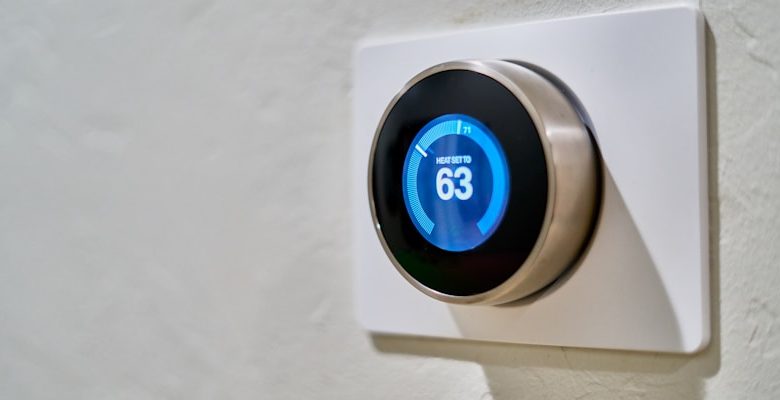The Role of Smart Contracts in DeFi Applications

- Understanding the basics of smart contracts
- Exploring the potential of DeFi applications
- How smart contracts are revolutionizing finance
- Challenges and opportunities in the DeFi space
- Security considerations for smart contracts in DeFi
- The future of decentralized finance with smart contracts
Understanding the basics of smart contracts
Smart contracts are self-executing contracts with the terms of the agreement directly written into code. They run on the blockchain, eliminating the need for intermediaries and providing a secure and transparent way to facilitate transactions. These contracts automatically enforce the agreed-upon rules and can only be altered if all parties involved reach a consensus. In the world of decentralized finance (DeFi), smart contracts play a crucial role in enabling various financial applications such as lending, borrowing, and trading without the need for traditional financial institutions.
One of the key benefits of smart contracts is their ability to execute transactions automatically once predefined conditions are met. This eliminates the need for manual intervention and reduces the risk of human error or fraud. Additionally, smart contracts are immutable, meaning that once deployed on the blockchain, they cannot be altered or tampered with. This feature ensures the security and integrity of the contract, giving all parties involved peace of mind.
Smart contracts are revolutionizing the way financial transactions are conducted by providing a secure, efficient, and cost-effective alternative to traditional methods. By leveraging blockchain technology, DeFi applications can offer users greater transparency, lower fees, and faster transaction speeds. As the adoption of DeFi continues to grow, smart contracts will undoubtedly play an increasingly important role in shaping the future of finance.
Exploring the potential of DeFi applications
When it comes to exploring the potential of decentralized finance (DeFi) applications, the possibilities are truly endless. DeFi applications have the ability to revolutionize traditional financial systems by providing a more inclusive and efficient way to manage financial transactions.
One of the key advantages of DeFi applications is the use of smart contracts, which are self-executing contracts with the terms of the agreement directly written into code. These smart contracts are stored on a blockchain, making them immutable and secure.
Through the use of smart contracts, DeFi applications can automate various financial processes, such as lending, borrowing, trading, and asset management. This not only reduces the need for intermediaries but also increases transparency and security.
Furthermore, DeFi applications are accessible to anyone with an internet connection, allowing for greater financial inclusion for individuals who may not have access to traditional banking services. This opens up a world of opportunities for individuals in underserved regions.
Overall, the potential of DeFi applications is vast, and as the technology continues to evolve, we can expect to see even more innovative use cases emerge in the near future.
How smart contracts are revolutionizing finance
Smart contracts are transforming the landscape of finance by providing a secure and automated way to execute agreements without the need for intermediaries. These self-executing contracts are written in code and run on blockchain technology, ensuring transparency and trust in financial transactions.
One of the key benefits of smart contracts is their ability to eliminate the need for middlemen, such as banks or lawyers, thereby reducing costs and delays in the process. This makes financial transactions more efficient and accessible to a wider range of people.
Furthermore, smart contracts enable the creation of decentralized finance (DeFi) applications that offer a variety of financial services, including lending, borrowing, and trading, all without the need for traditional financial institutions. This opens up new opportunities for individuals to access financial services that were previously out of reach.
Challenges and opportunities in the DeFi space
One of the main challenges in the DeFi space is the lack of regulatory clarity. As decentralized finance continues to gain traction, regulators are struggling to keep up with the pace of innovation. This uncertainty can create roadblocks for DeFi projects looking to scale and attract traditional investors.
On the other hand, there are also numerous opportunities in the DeFi space. Smart contracts have the potential to revolutionize traditional financial services by automating processes and reducing the need for intermediaries. This can lead to lower costs, increased efficiency, and greater accessibility to financial services for underserved populations.
However, with these opportunities come risks. Smart contracts are only as good as the code they are written in, and vulnerabilities can be exploited by bad actors. Security audits and rigorous testing are essential to mitigate these risks and ensure the safety of user funds.
Security considerations for smart contracts in DeFi
When it comes to DeFi applications, security considerations for smart contracts play a crucial role in ensuring the integrity and trustworthiness of the platform. Smart contracts are self-executing contracts with the terms of the agreement directly written into code. While they offer many benefits such as automation and transparency, they also come with inherent security risks that need to be addressed.
One of the main security considerations for smart contracts in DeFi is the potential for bugs or vulnerabilities in the code. These bugs can be exploited by malicious actors to manipulate the contract in their favor, leading to financial losses for users. To mitigate this risk, thorough testing and auditing of the smart contract code is essential before deploying it on the blockchain.
Another important security consideration is the issue of permissionless access to smart contracts. While this feature allows for greater accessibility and inclusivity, it also opens up the contract to potential attacks. Therefore, implementing proper access control mechanisms and permission settings is crucial to prevent unauthorized access and ensure the security of the contract.
Furthermore, the integration of external dependencies in smart contracts can introduce additional security risks. These dependencies may contain vulnerabilities that can be exploited to compromise the integrity of the contract. It is important to carefully vet and monitor these dependencies to reduce the likelihood of security breaches.
In conclusion, security considerations for smart contracts in DeFi are paramount to the overall success and sustainability of decentralized finance platforms. By addressing potential vulnerabilities, implementing access control mechanisms, and monitoring external dependencies, developers can enhance the security posture of their smart contracts and build trust among users in the DeFi ecosystem.
The future of decentralized finance with smart contracts
Decentralized finance (DeFi) applications have been revolutionizing the traditional financial system by leveraging smart contracts on blockchain technology. The future of DeFi with smart contracts looks promising as it offers a more efficient, transparent, and secure way to conduct financial transactions without the need for intermediaries.
Smart contracts are self-executing contracts with the terms of the agreement directly written into code. They automatically enforce and facilitate the negotiation or performance of a contract, eliminating the need for third parties. In the context of DeFi, smart contracts enable users to participate in various financial activities such as lending, borrowing, trading, and more, all without relying on centralized institutions.
One of the key advantages of smart contracts in DeFi applications is the automation of processes, which reduces the risk of human error and potential fraud. By removing intermediaries, smart contracts also lower transaction costs and increase the speed of transactions. This makes DeFi more accessible to a wider range of users, including those who are unbanked or underbanked.
As the adoption of DeFi continues to grow, the role of smart contracts will become even more integral in shaping the future of finance. With the ability to program complex financial transactions and conditions, smart contracts open up a world of possibilities for innovative DeFi applications that can revolutionize the way we interact with money and assets.



